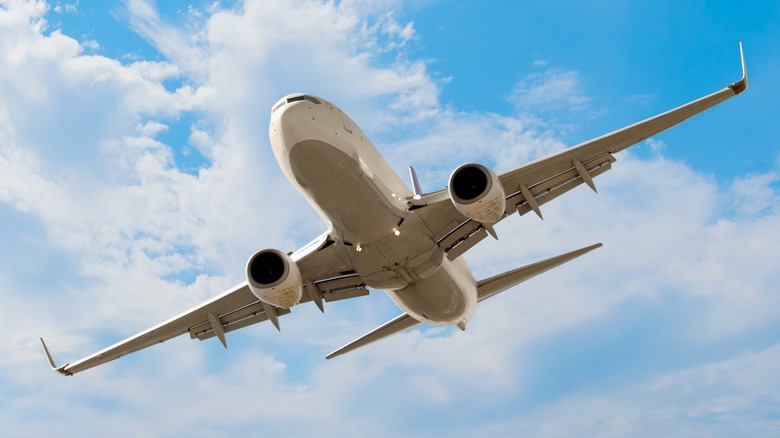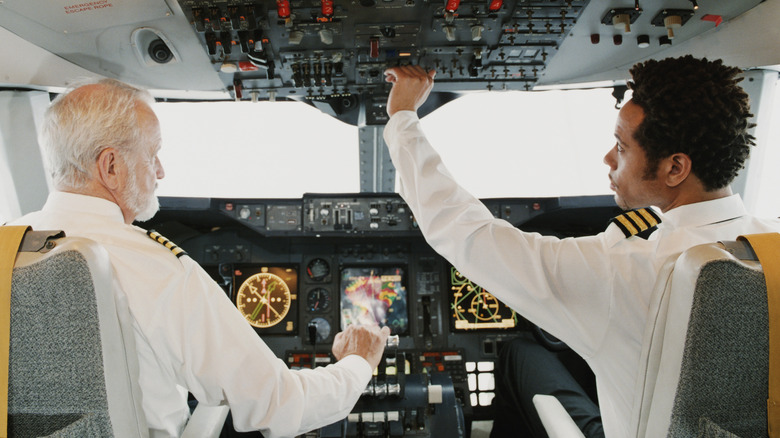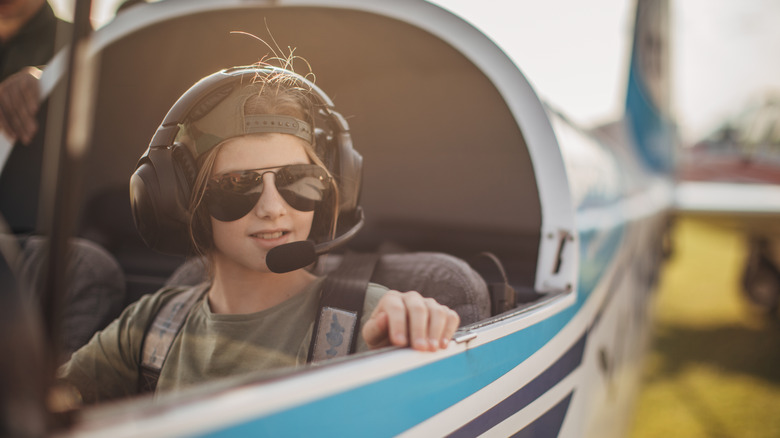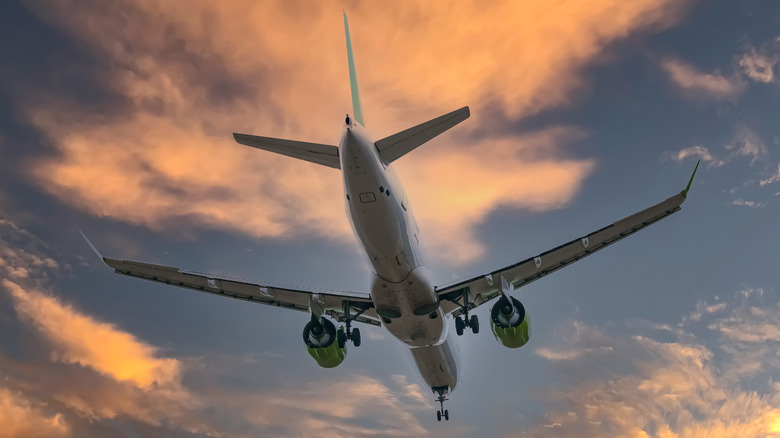Do You Have What It Takes To Become A Pilot? Expert Advice For Aspiring Aviators
There are perhaps few career choices as emblematic of the modern adventurous spirit as aviation. Whether you're in the Air Force, a commercial airline pilot, or just a private explorer, it's through air travel that we can explore the wider world with speed and ease that our ancestors could have only dreamt of.
Of course, being a pilot isn't as simple as getting your driver's license — to be certified to control some of the most fascinating examples of travel technology takes hard work, study, and dedication.
For those who believe themselves to possess those qualities, what else can you do to get yourself on track for a career in professional aviation? To answer that, SlashGear spoke to Captain Richard J. Levy of Aviation Expert Consulting, LLC. We sent several questions to Cpt. Levy about the do's and don'ts of an aviation career, and he offered expert advice from his life experience.
Captain Richard Levy (retired) flew widebody aircraft across the North Atlantic, North Pacific, South America, and over the North Pole. He is currently a Flight Crew Training Instructor at a major U.S. airline. As an aviation expert, he also currently testifies in aviation cases involved in litigation. He can be found at the Aviation Expert Consulting website.
Are you ever too old to become a pilot?
The wild blue may seem like a young person's world, but even if you've got a few years under your belt, you can still become a pilot. As long as you are able-bodied and in healthy mind, there's still time to take on the training.
"You are never too old to become a pilot, as long as you are not operating under 49 CFR 121," says Cpt. Levy. "In simple language, Part 121 of the Federal Aviation Regulations (FARS) is written by the Federal Aviation Administration. Part 121 are the regulations. Air carriers authorized to operate under a Part 121 certificate are generally large, U.S.-based airlines, regional air carriers, and all cargo operators.
"Pilots flying for airlines operating under these regulations must retire no later than the age of 65. Basically, anyone flying privately or even under Part 135 of the FARS (generally charter operators), can fly as long as they are able to pass physical examinations and proficiency checks."
What topics should teens focus on in school if they want to become a pilot?
A pilot is one of those jobs that every young person dreams of holding at least once in their lives, but for some, the genuine desire to fly can hit at a surprisingly young age. Naturally, no matter what kind of career you want, you should strive for success in school to put you on the right track.
As far as being a pilot goes, though, that desire to strive, succeed, and excel is more important than simple letter grades. According to Cpt. Levy, seeking a career in aviation is more about having the right attitude, learning the vital rules and regulations, and staying committed.
"To be honest, it does not really matter," Cpt. Levy said about particular school topics. "What a teen needs most is motivation to learn, follow procedures, policies, regulations, and most importantly, a burning desire to succeed and be the best."
Are there any extracurricular activities one can do if they want to become a pilot?
A classic strategy for getting a head start on your career of choice is to engage with relevant aspects of it outside of school hours. While it's not exactly feasible for a teenager to get real flight experience during their schooling years, it is very possible to make contact with groups and organizations to get them on the proper path.
"If one wishes to fly privately, they may join a flying club," suggests Cpt. Levy. "A flying club is generally more economical than enrolling in a flying school at a local airport. Just use your favorite search engine and look for a flying club in your local area. If the goal is to fly for a major airline, there is a pathway to a career with most of the large major airlines.
"If one doesn't have any flying experience, these four-five-year programs will guide and mentor you along the way to a seat on the flight deck of your favorite airline – look up: 'Destination 225' which leads to Southwest Airlines; 'Cadet Academy' which leads to American Airlines; 'Propel Flight Academy' which leads to Delta Airlines; and 'Aviate Academy' which leads to United Airlines, or a search on the airline of your choice will most likely offer you information about their respective cadet academy."
What things should aspiring pilots avoid doing if they want a career in aviation?
Since being a commercial pilot is a career with heavy responsibilities — up to and including caring for the safety of human passengers — they can't give certifications to just anyone. Certain actions throughout your lifetime may make it much more difficult to meet the requirements for a pilot's license.
When asked what might disqualify someone from becoming a pilot, Cpt. Levy said, "That is a very simple question! Do not get stopped for a DWI, absolutely avoid illegal drugs, do not get in trouble with the police, and absolutely avoid violating Federal Aviation Regulations."
Essentially, outstanding criminal records, especially for crimes related to the irresponsible usage of substances like drugs and alcohol, can be a big red mark for those pursuing pilot licensure. After all, when you're in charge of safely guiding potentially hundreds of passengers across the ocean, even the notion of any illicit activity is a complete non-starter.
What advice would an experienced pilot offer someone contemplating a career in aviation?
So you're reasonably sure you want to be a pilot, you're already pursuing the knowledge and requirements, and have kept your proverbial nose clean. Is there anything else you can do to improve your chances further? According to Cpt. Levy, it's all about constantly learning new things, and more importantly, doing so safely.
"Having flown for 41 years at a very large U.S. airline that flies aircraft around the world, I would share this with you: Start your flying lessons now, learn everything you can about flying; and as my childhood neighbor, who was the #1 seniority Captain at another major airline told me over and over, 'you never stop learning.' There is always a better way to fly and a better way to work with your crew.
"Finally, let safe flying be your guide in all decisions you make. Getting to your destination is surely important; however, it is not that important if safety is jeopardized in even the slightest way. If there is a doubt, then let this be your motto: DON'T DO IT!"





